 VESPERS WITH
VESPERS WITH
ROME UNIVERSITY STUDENTS

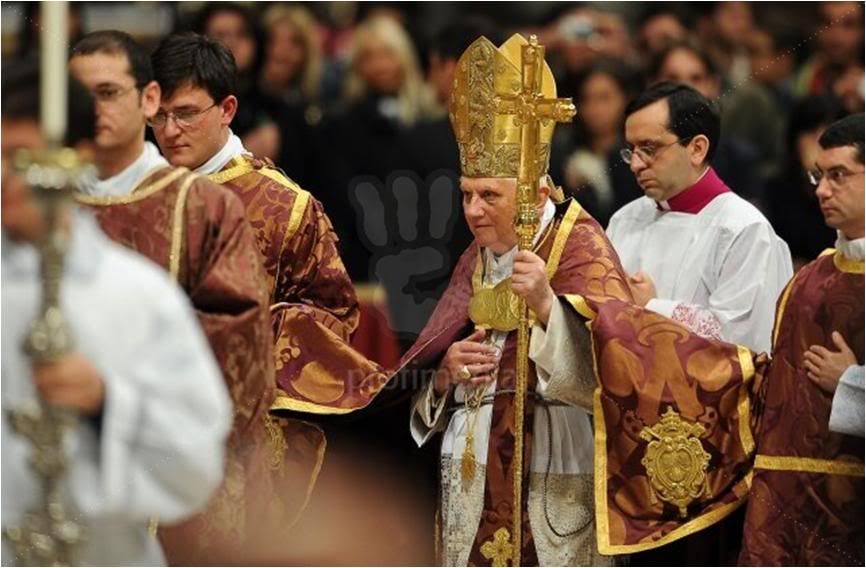
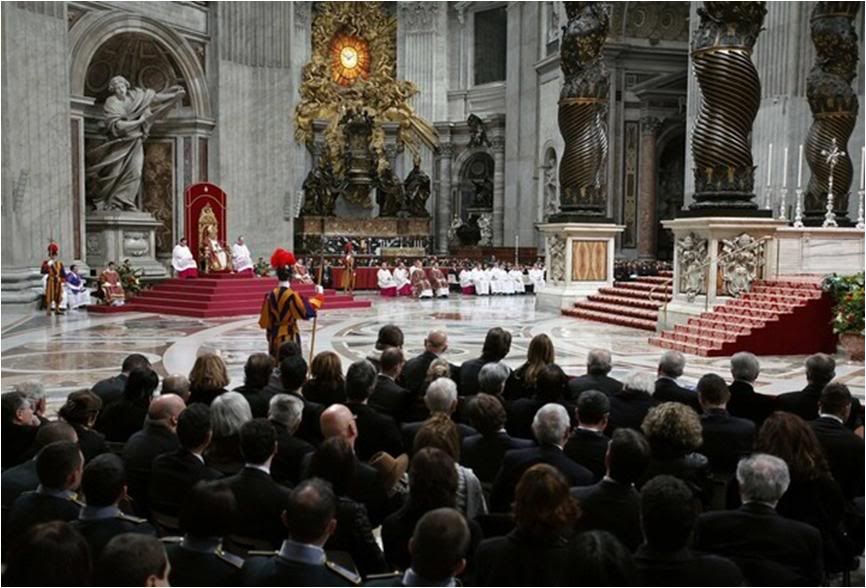
(18 Dec 09 - RV) Pope Benedict XVI prayed Vespers with Roman university students yesterday evening in St. Peter’s Basilica:
Beginning with Vespers for the 17th of December, the Church enters fully into the final stage of preparation for Christmas – the Great and Solemn Feast of the Birth of Our Lord and Saviour.
Vespers are the Church’s official Public Praise of God in the evening, and starting on the evening of December 17th, the Church prays the O Antiphons: seven invocations of the Messiah – the Christ – God’s Chosen One, who will free Israel, break the power of Hell, and restore friendship between Heaven and Earth.
At the conclusion of the Vespers service, a delegation of students from Australia handed over an icon of Mary, Seat of Wisdom to a delegation of students from Africa, for whom the Holy Father especially prayed, as well as for the success of co-operation between Roman and African universities that has been growing since the conclusion of the Special Synod Assembly for Africa.
Pope Benedict’s Homily on Thursday concentrated on the first of the seven O Antiphons: O Wisdom.
The Pope said the Wisdom invoked in the Church’s Thursday Evening Prayer is the Son of God, the Second Person of the Blessed Trinity; the Word, who, as we read in the Prologue to John’s Gospel, “was in the beginning with God,” indeed, “He was God,” and with the Father and the Holy Spirit created all things and “became flesh” to reveal to us the God, whom no flesh can see.
“Dear Friends,” said Pope Benedict, “A Christian professor, or a young Christian student, carries within him the passionate love for this Wisdom! We read all in its light: we discover its traces in the elementary particles and in the verses of poets; in the legal codes and the events of history; in works of art and in mathematical expressions.
Without Her, nothing was made of all that exists (cf. Jn 1:3) and thus can we see a reflection of Her in everything created.
All that human intelligence receives may be so received because, in some way and measure, it participates in creative Wisdom – and it is here, finally, that there rests the very possibility of study, of research, of scientific dialogue in every field of knowledge.
The Pope ended: “May this Christmas bring joy and hope to you, your families and the whole university community throughout the world.
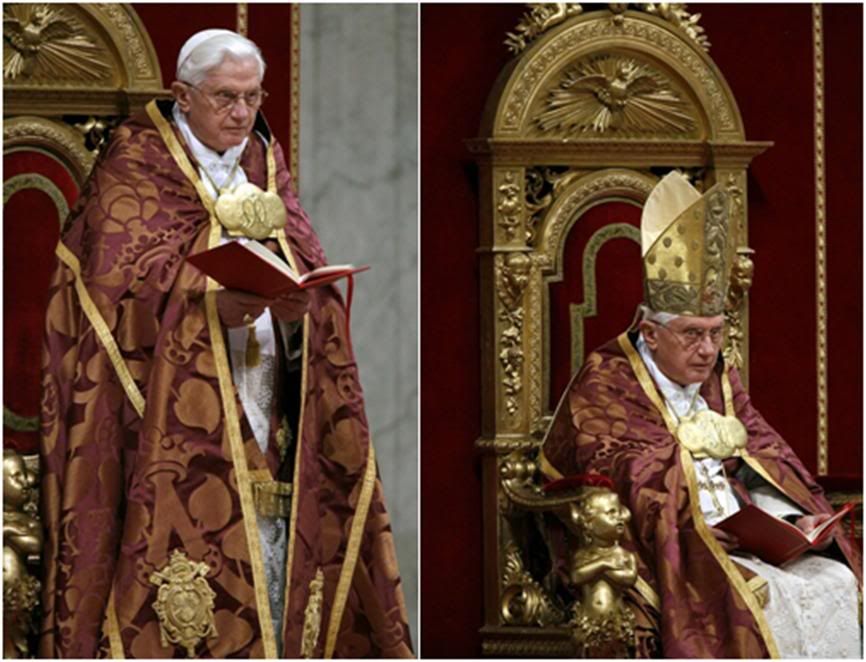 Here is a translation of the Pope's Vespers homily:
Here is a translation of the Pope's Vespers homily:
Eminent Cardinals,
Venerated Brothers in the Episcopate,
Distinguished Ladies and Gentlemen,
Dear brothers and sisters:
What wisdom was born in Bethlehem? This is the question I wish to pose to myself and to you at this traditional pre-Christmas encounter with the Roman university world. Today, instead of Holy Mass, we celebrate Vespers together, and the happy coincidence with the start of the Christmas novena will lead us shortly to sing the first of the so-called Major Antiphons:
"O Wisdom, O holy Word of God,
you govern all creation with your strong yet tender care:
Come and show your people the way to salvation".
(Liturgy of the Hours, Vespers for Dec. 17)
This stupendous invocation is addressed to 'Wisdom', the central figure in the Books of the Proverbs - Wisdom and Ecclesiastes - which are therefore called the 'wisdom books' and in which Christian tradition sees a prefiguration of Christ.
Such an invocation becomes truly stimulating and even provocative, when we are in front of the manger, that is, before the paradox of a Wisdom which, having come out "of the mouth of the Most High', lies wrapped in swaddling clothes in a manger (cfr Lk 2,7,12,16).
We can already anticipate the answer to our initial question: what was born in Bethlehem is the Wisdom of God. St. Paul, writing to the Corinthians, uses this expression: "God's wisdom, mysterious, hidden" (1 Cor 2,7), that is, in a divine plan which remained hidden a long time and which God himself revealed in the story of salvation.
In the fullness of time, this Wisdom took on a human face, the face of Jesus, who - as the Apostolic Creed says - "was conceived of the Holy Spirit, born of the Virgin Mary, suffered under Pontius Pilate, was crucified, died and was buried, descended into hell, the third day arose from the dead, ascended into heaven, seated at the right hand of God the Father Almighty, from whence he shall come to judge the living and the dead".
The Christian paradox consists precisely in the identification of divine Wisdom, the Eternal Logos, with the man Jesus of Nazareth and his story. There is no solution to this paradox outside of the word 'Love', which in this case must be written with a capital L, because it is a Love that infinitely surpasses human and historical dimensions.
Therefore, the Wisdom that we invoke this evening is the Son of God himself, the second person of the Most Holy Trinity. It is the Word, which, as we read in the Prologue to John's Gospel, "was in the beginning with God", and "was God", who with the Father and the Holy Spirit created all things and who "became flesh" to reveal the God that no one had ever seen (cfr Jn 1,2-3.14.18).
Dear friends, a Christian professor, or a young Christian student, carries in himself passionate love for this Wisdom! Read everything in his light; take hold of him in elementary particles and the verses of poets, in juridical codes and the events of history, in artistic works and in mathematical expressions.
Without him, nothing came to be (cfr Jn 1,3), and therefore in every created reality, one can see his reflection, obviously in different degrees and modalities.
Everything that can be received by the human intelligence is possible because in some way and to some measure, they are part of creative Wisdom. And so, in the ultimate analysis, it is the possibility itself of study, of research, of scientific dialog in every field of knowledge.
At this point, I cannot avoid a reflection that is perhaps rather discomforting, but useful for us who are here and who belong for the most part to the academic field.
Let us ask ourselves: on Christmas night, who were there at the cave in Bethlehem? Who welcomed Wisdom at its birth? Who ran to see him, acknowledged and adored him?
Not doctors of the law, scribes or sages. There were Mary and Joseph, and then the shepherds. What does it mean? Jesus would say one day: "Yes, Father, such has been your gracious will" (Mt 11,26): you have revealed your mystery to the little ones [cfr Mt 11,25).
But does it not serve anything then to study? Is it outright harmful, counter-productive to knowing the truth? The history of 2000 years of Christianity excludes this last hypothesis and suggests to us the right answer: that one must study and deepen one's knowledge while keeping a 'childlike' spirit, a humble and simple spirit, like that of Mary, Seat of Wisdom.
How many times have we feared to approach the cave in Bethlehem because we have been concerned that this would be an obstacle to our critical faculties and our 'modernity'! Instead, if we came near, then each of us can discover the truth about God and that human being: they met in that baby, born of the Virgin Mary. Man's yearning for eternal life had softened the heart of God who did not recoil to take on the human condition.
Dear friends, to help others discover the true face of God is the first form of charity, which for you assumes the form of intellectual charity. I have noted with pleasure that the theme for the diocesan pastoral ministry in the universities this year is "The Eucharist and intellectual charity" - a demanding but appropriate choice.
In fact, in every Eucharistic celebration, God enters history in Jesus Christ, in his Word and his Body, giving us that charity which allows us to serve man in his concrete existence.
The project "A culture for the city" offers a promising proposition of Christ's presence in the cultural field. So while I hope that your pastoral course will be fruitful, I must also invite all the universities to be places of formation for authentic workers in intellectual charity. The future of society will depend largely on them, especially in the elaboration of a new humanistic synthesis and a new capacity to apply it (cfr Enc. Caritas in veritate, 21).
I encourage all the responsible officials in academic institutions to proceed together, collaborating in the construction of communities in which all young people are formed to become mature and responsible men who can realize the 'civilization of love'.
At the end of this celebration, an Australian university delegation will turn over to an African delegation the icon of Mary Sedes Sapientiae (Seat of wisdom). Let us entrust to the Blessed Virgin all the university students on the African continent, along with the commitment for cooperation which in the months following the Special Synodal Assembly for Africa, has been developing between the universities of Rome and Africa.
I renew my encouragement for this new prospect of cooperation and I hope that it may give rise to cultural projects that are able to promote the integral development of man.
Dear friends, may the coming Christmas bring joy and hope to you, your families and the entire university community in Rome and around the world.
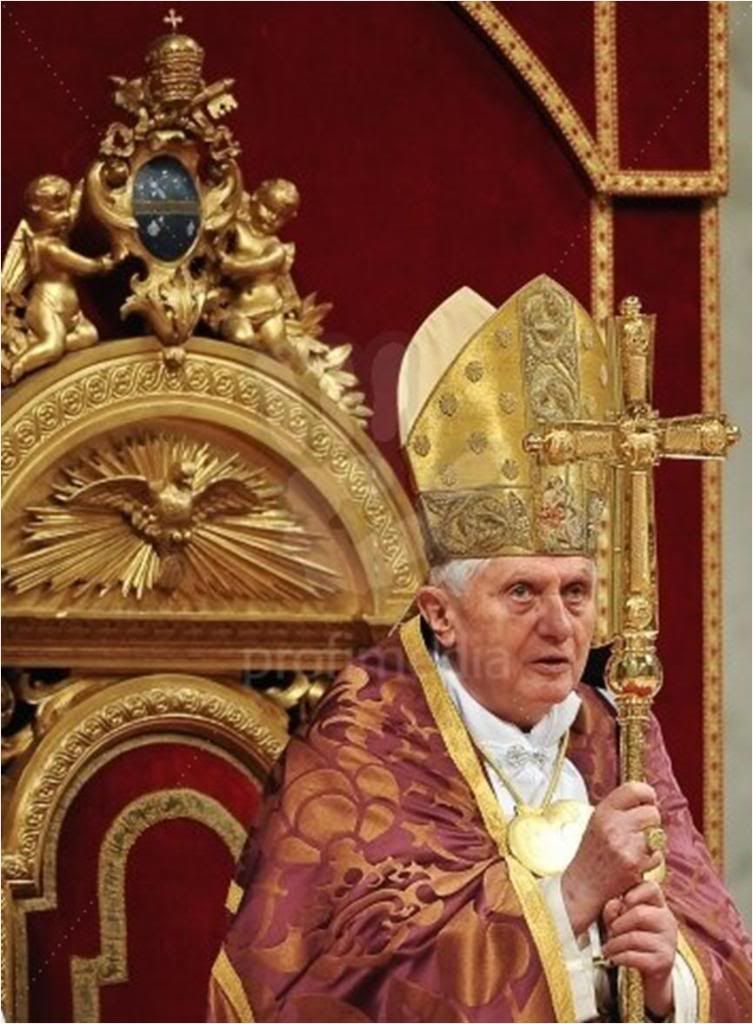
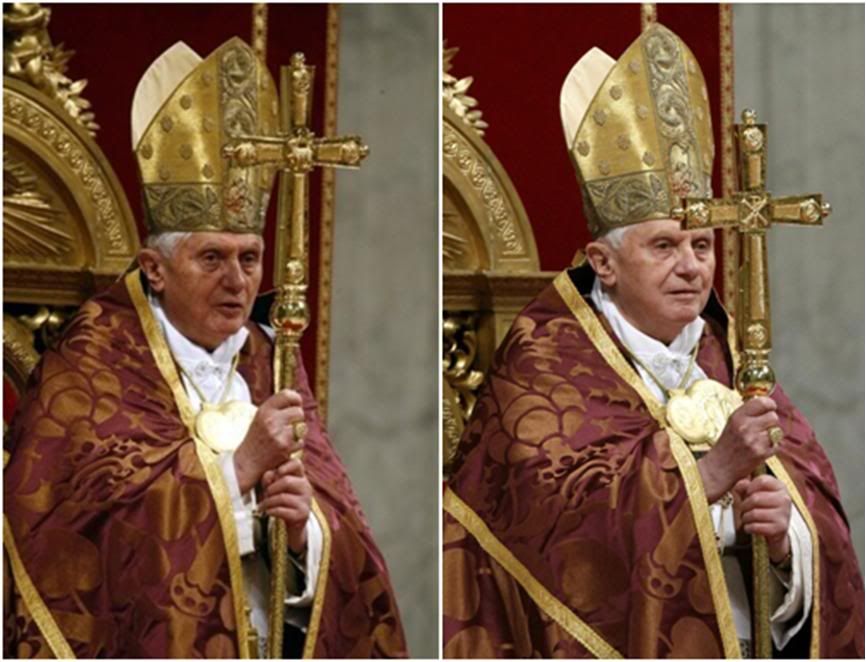
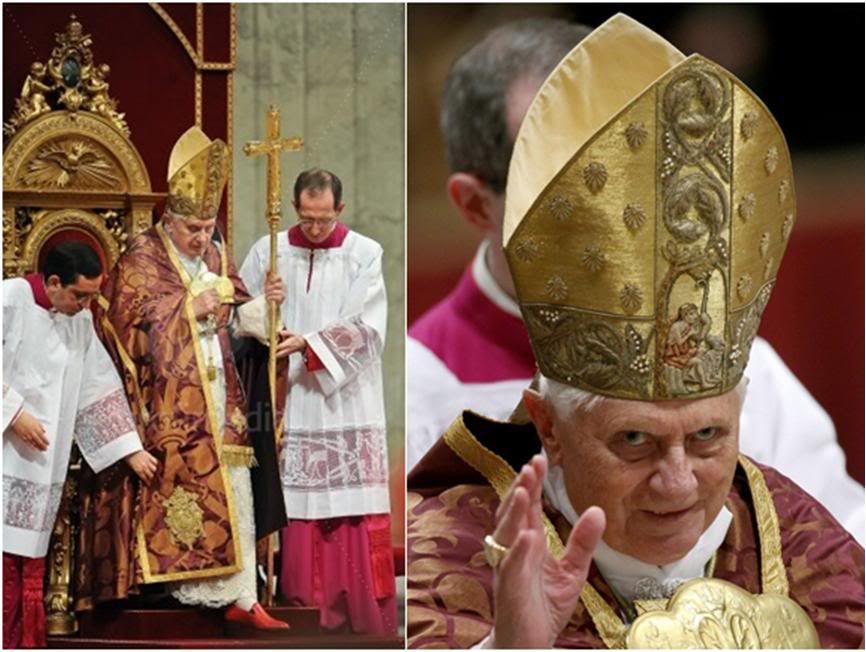
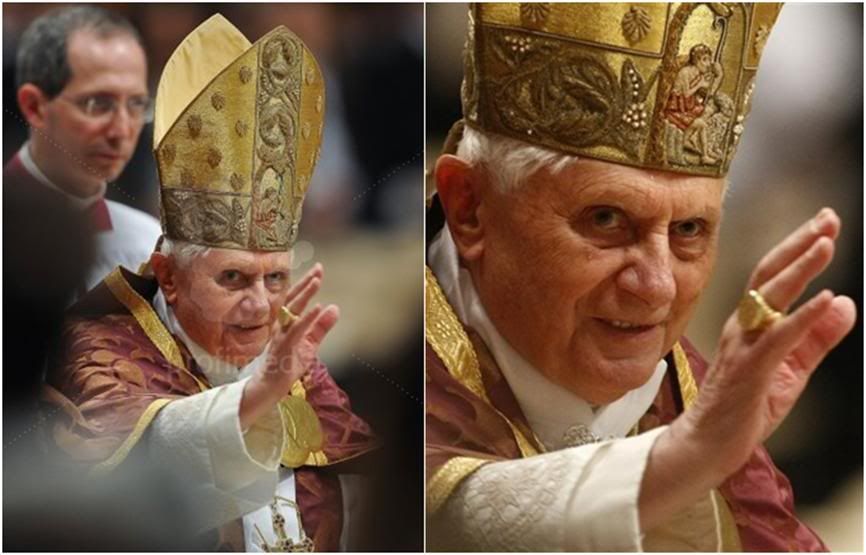
[Modificato da TERESA BENEDETTA 18/12/2009 22:44]